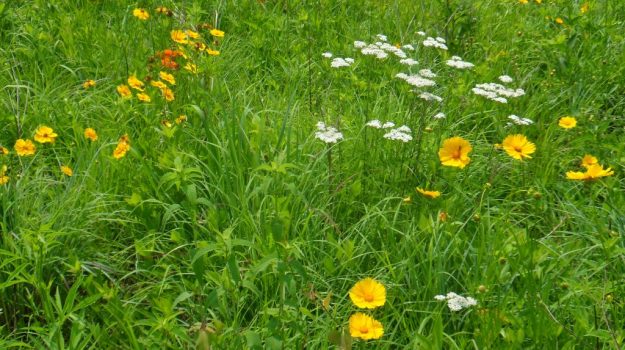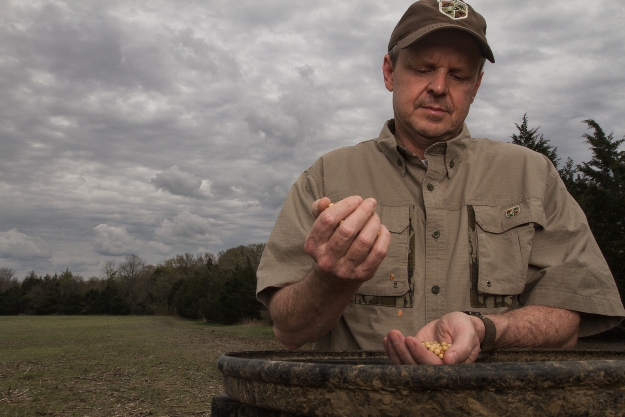
Wildflowers are the in-thing for land and wildlife management, and for good reason. Here are six reasons you should incorporate them onto your own slice of heaven or backyard.
1. Insect Magnets
Wildflowers are the host plant for all sorts of insects, therefore your wildflower plots will be loaded down with Lepidopterans (moths and butterflies), Orthopterans (grasshoppers and crickets), Hymenopterans (bees, wasps, and ants), and others. Benefits resulting from having more insects include better pollination and fruit/seed-set of crops and trees, beneficial insects to combats unwanted pests, insects to feed your wildlife, and…honey!!!
2. They’ll grow on poor sites you’d normally leave idle
Many of the more common and popular wildflower species will survive and thrive on areas that just don’t seem worth the effort to establish a traditional food plot. Log loading decks are often left scalped of their top soil layer and compacted. These setbacks are no big deal for wildflowers. In fact, the little wildflower sprouts won’t have near the weed and grass competition compared to being planted in better soils, so they’ll have a much greater chance of survival and persistence.
3. Soil Improvement
By establishing wildflowers on previously underutilized, poorish sites, your soil will likely improve enough in time to become usable for lush food plots. Wildflowers often have aggressive root systems that penetrate deep to mine moisture and nutrients. As a result, hard soil layers will become loosened and aerated, levels of organic matter and top soil will increase, and soil microflora will flourish.
4. Food source
Wildflower plots double as drought tolerant food plots, increasing your acreage of feed. When spring subsides and long, hot days take hold, many traditional food plot species can begin to lose their luster or go dormant. Wildflowers, a.k.a “forbs,” will be at their prime at this point when deer and other critters need a quality food source. They also provide seeds for turkeys and other birds.
5. Cost Efficient
Wildflowers aren’t domesticated; so unlike designer farm crops, they’ve evolved over millennia to get by just fine without a bunch of expensive fertilizer and other amendments. There are also plenty of options for monetary assistance from government programs to offset costs. Most are either perennial or reseeding annuals, so with a little soil disturbance from time to time they’ll come back year after year resulting in more savings to the grower.
6. They just look cool
A long strip of wildflowers along the drive to the cabin, or in and around openings on your property will kick your credentials up a notch. The fact is your neighbors, guests, and significant others will have a new respect for your property and land management knowledge upon seeing the strategically placed strips of color.
Wildflowers will grow on concrete, are simple to establish, rejuvenate the soil, sustain and house all sorts of wildlife, are cheap and long lasting, and have enough curb appeal to make you look like a pro. So get those hands dirty and plant some wildflowers!
This tip is courtesy of the GameKeepers Field Notes, a weekly wildlife and land management email newsletter produced by the Mossy Oak GameKeepers.
A GameKeeper by definition is someone who truly loves AND lives the land, the critters and nature…not just during hunting season but all the time. A GameKeeper wants to be outdoors every day and work the dirt while living their personal “obsession”.
Find out more about what makes a GameKeeper by visiting our website.




























